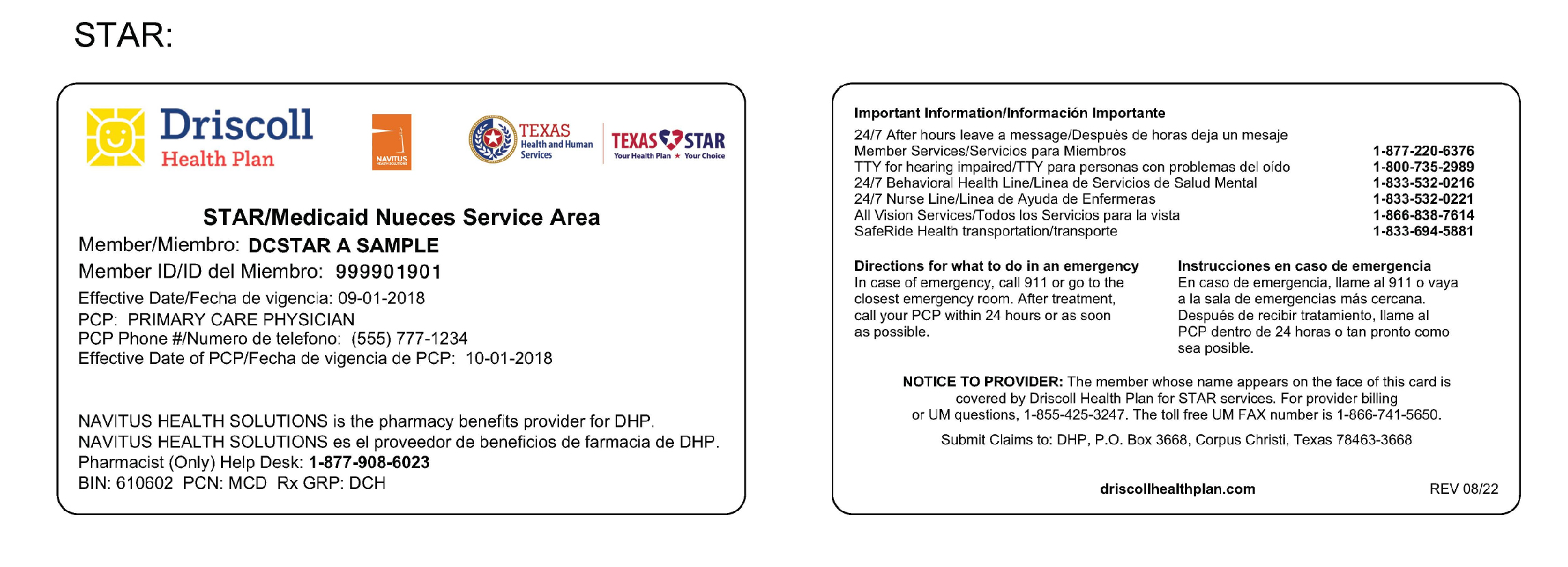When illnesses and injuries happen outside of regular office hours, follow these steps for help.
Call your Primary Care Physician (PCP). If you get sick at night or on the weekend, you can call your PCP’s office number. The office will have an answering service or message on how to contact the PCP. The PCP should return your call within 30 minutes.
To find the name and phone number of your PCP, please look at the front of your member ID card.

If your doctor’s office is closed and your PCP recommends you receive treatment, call or visit an after-hours or urgent care center.
Driscoll Health Plan offers members access to many locations with extended hours. Enter the city or zip code and click search to see a list of available options.
Call 9-1-1 in a medical emergency, or visit the nearest Emergency Room for a serious injury or illness.
Use the following table to determine which healthcare service you need.
| Healthcare Provider | Overview | Services | Waiting Period |
|---|---|---|---|
| Primary Care Provider (PCP) | A primary care doctor knows your health history. Your primary care doctor sees you for regular checkups, treats you for urgent care matters, prescribes medicine or supplies you may need, and refers you to a specialist when necessary. Call your PCP whenever possible, and they will refer you to an urgent care center or hospital if needed. |
| You/your child should be able to be seen for routine care within two weeks. There may be reduced wait times with a scheduled visit. |
| Urgent Care Center | Urgent care centers provide treatment when you have an injury or illness that requires immediate care but is not serious enough to go to the emergency room. You should also go to an urgent care center if your primary care doctor is not available. | Treatment of:
| You/your child should be seen within 24 hours. Urgent care centers are often open after regular PCP office hours. Walk-ins are welcome, but waiting periods may vary. |
| Emergency Room (ER) | Emergency rooms provide immediate treatment of life-threatening conditions. If you have severe symptoms or believe your condition is life-threatening, you should go to the emergency room or call 911. | Treatment of:
| You/your child can be seen 24 hours a day, 7 days a week. However, waiting times may be longer because patients with life-threatening emergencies will be treated first. |
